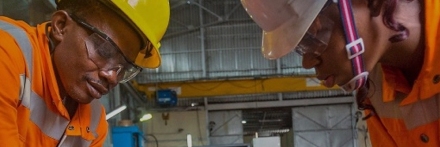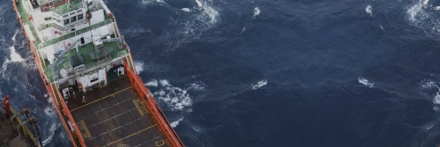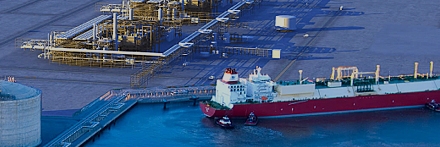The Group Managing Director, Nigerian National Petroleum Corporation (NNPC), Mallam Mele Kyari, while speaking at a conference in Abuja recently disclosed that the corporation recorded a total of 45,347 pipeline breaks on its downstream pipeline network between 2001 and half year 2019.
Kyari, who made this disclosure in a keynote address at the Nigeria International Pipeline Technology and Security Conference and Exhibition organised by the Pipelines Professionals Association of Nigeria (PLAN) explained that in 2018 alone, a total of 19 fire incidents were recorded on the petroleum products pipelines.
He pointed out that the corporation must do everything possible to reinforce the narrative of the critical role of pipeline assets to the nation’s energy security and economic progress. He posited that it was difficult for the oil and gas industry to deliver much value to the economy without effective and efficient pipelines operations. “As a major player in the oil and gas industry, NNPC operates over 5,000 kilometers of pipelines traversing many communities to link terminals, three refineries and 20 depots for efficient transportation of crude oil and refined products.
Also, NNPC has over 1,700 kilometers of natural gas pipelines to supply gas to power plants and gas-based industries, including deliveries to trans-national reception points,” the NNPC boss added. He lamented that these huge pipeline assets have become difficult to operate efficiently as a result of incessant activities of vandals and other criminal syndicates. The NNPC helmsman stressed the corporation’s willingness to collaborate with all stakeholders in the industry to respond aggressively to incidences of pipeline vandalism in the country to mitigate them.
The above scenario paints a good picture of the economic challenges emanating from the absence of a well-structured outfit specifically charged with the protection of these humongous national assets. Perhaps the figures produced by the NNPC helmsman may have been tripled were it not for the strategic intervention of private corporation Ocean Marine Solutions, OMS, which has taken the bold initiative of securing pipelines in the Niger Delta region.
According to Capt. Hosa Okunbor, Chairman/ CEO, OMS the motivation for venturing into the hitherto restive region to protect the oil pipelines was based on the consideration of the enormous investments involved in crude oil prospecting exploration, extraction and evacuation by the Nigerian Petroleum Development Company, NPDC (a subsidiary of NNPC) and the international oil Majors in Nigeria.
Oil pipelines vandals
In a chat with Vanguard, Capt. Okunbor explained that the company, OMS was birthed by the need to curb the nefarious activities of oil pipelines vandals, who infract the oil pipelines and extract it for their illegal refineries in the creeks.
According to him, the company which came into the scene since 2015 and has contributed enormously to rescuing NNPC and its Pipelines and Products Marketing Division from what used to be the daily occurrence of pipeline vandalism. He noted that before OMS commenced the job, the country’s daily crude production dipped from a high of 2.2 million barrels a day to 1.2 million, with its attendant negative effect on the nation’s economy.
“As far back as December 18, 2013, a letter of comfort was issued to us by NNPC for the maintenance, restoration and provision of security surveillance, on the Bonny to Port Harcourt and the Escravos to Warri Pipeline Segments on a proof of concept basis. “It can be truly said that in the last nine years when OMS came in to tackle the challenges of securing these national assets, the company has proven that it can be counted upon to conduct maritime security operations, deterring threats from piracy and terrorism as well as vandalisation with a 100 percent record of success, especially in the Niger- Delta region.
“That is why, it was no surprise that when the rupture of the 16th inches pipelines along the 36 kilometres pipeline in the Opuama to Otumara axis transporting crude for export from the OML 40, the NNPC banked on our company to help resolve the crisis. And our intervention led to the destruction of illegal refineries along the OML 40 pipeline right of way.”
Letter of Comfort
Recall that OMS was not the first point of contact by the NNPC, it was PPP Fluid mechanics limited, a subsidiary company owned by OMS. It was contacted to move crude by marine vessels to the refineries and was successfully done and aswell kept the refineries running until the international price for crude dropped making it uneconomical and expensive for NNPC to continually badge the movement of crude to the refineries. Continuing, he noted that “It had to discontinue it and considered pipeline repairs, maintenance, and surveillance because PPP Fluid mechanics limited have proven itself dutiful, diligent and efficiency.”
However, the pipeline repairs and surveillance proposal as an idea mooted by OMS was regarded as worthy of consideration. The strategies of OMS in resolving the intractable challenges of NNPC began with the concept proposal to provide a service which in the context of NNPC was a module never tried before. This means that funds would not be given and the company would have to bear the risk if the project goes wrong.
He explained it thus:: “I went on to fund the project after which the success of it earned OMS the confidence of the NNPC to further pursue its course in delivering services of maritime surveillance, maintenance of the pipelines till date. As stated earlier, our vision is relentlessly pursuing to restore the country’s oil output to 2.2 billion barrels per day, and more. We will never relent in seeing it come true.”
NNPC’s assets
The chairman hinted that: “OMS is a very high committed company and has always been called to the rescue whenever there were crises. We had a situation in the Niger Delta region where the pipelines were constantly disrupted due to increasing vandalism and that was affecting the performance of the refineries and as you know the refineries cannot perform without a reliable supply of crude oil and evacuation of product.
“The refineries at the time couldn’t operate and we were constantly battling with one repair or another, so we came and offered a concept which we knew cannot fail to NNPC. It was simple, we proposed to take over the security operation and maintenance of the pipelines without being paid until we can prevent the crisis. Since it is working the concept has been extended to cover the wider region. I must say here too, that we have proven that we are a very reliable partner and we have demonstrated capacity.”
Dead forest
On the impacts of pipeline vandalism, the OMS boss lamented that: “Every first-time visitor will express shock at what they see. They make comments such as, ‘This is a dead forest. No green leaves, here” He noted that the deplorable situation is the resultant effect of illegal activities of crude oil thieves in their brazen attempt to siphon crude oil from Shell, Chevron or NDPC crude oil pipelines.
“The mandate of my company was to repair all identified valve insertion points, provide 24/7 security and surveillance watch, provide timely emergency response to address incidences of vandalism, excavate segments that required sectional replacements, radiograph, all welded joints and corrosion barrier of joints, lower pipeline segment after backfilling and reinstatement of site and above all to manage and engage all the communities along the right of way so as to avoid any work disruptions,’’ he added.
To ensure timely delivery, he explained that: “OMS had deployed our special team comprising a technical team, government security forces, and community surveillance guards to site. “Its tasks included underwater activities, to first investigate, identify and disable valve points, provide security coverage and eventually to end vandalism, destroy the numerous illegal refineries along and around the OML 40 pipeline right of way.
“Also note that pipeline vandalism has made coastlines almost inoperable and here we came both with the security and maintenance. Also, whenever the country needs crude it’s just a matter of pump growth and you get it. I can say it has solved that growth completely and it’s like a game-changer for the economy. “Well, the statistics are very clear, in 2012, the country had about 110 infractions. In 2013, it went up to 208 infractions that are verve insertions and other infractions but from the time OMS came in, it has virtually stopped.
“The number of infractions reduced, as we had only 1 infraction in 2017 which was attended promptly and then 4 infractions in 2016. So when you comparing the numbers you will see that OMS is doing a good job.
Troubling situations
“I would say the most compromised areas along the pipeline right of way were Ajomo with 88 cooking ovens, Tibo with 51 cooking ovens, Opuama with 31 cooking ovens, Opuama also had 21 wooden boats and Otumara with 15 cooking ovens.
“The least compromised was Dehele/Baterem with four cooking ovens. After its consistent and methodical work, 23 valve insertion points were repaired, over 100 illegal refineries along the pipeline right of way were clamped, bunkers were arrested, and oil spillage resulting from the repair works were controlled and contained.
OML 40 and Ocean marine dealings
“In the end, using Opuama as a case study, a total of 2,247,138 barrels were successfully pumped against a previous 1, 603, 56 barrels before OMS intervention work.
“Also, when you evaluate the success story of OMS by measuring the decrease of losses in barrels in quantity and percentages, from a loss of 100,219 barrels in December 2018, as at February 2019, the loss total had decreased to a scanty 2,450 barrels. All translate to a percentage decrease from 62 percent in 2018, to a near insignificant two percent as at February 2019.
Nigeria losing $20 billion annually to crude theft
“To better appreciate the enormous work that we have done, from a recent report by the Nigeria Navy, Nigeria was losing about $20 billion annually to crude oil theft which is an estimated 55,210 barrels of oil per day or 1,656,281 barrels of oil stolen by oil thieves in 2013 alone. “It is to stem this hemorrhage and horrendous activities, which OMS, a renowned maritime security company was called to address and like it always does, OMS delivered. “With this, OMS can then proudly say it has delivered on this new challenge on the securing and retrofitting the Opuama and Otumara OML 40.’’
Source: Vanguard – https://www.vanguardngr.com/2019/10/how-were-securing-pipelines-nations-economy-okunbor-ocean-marine-boss/





